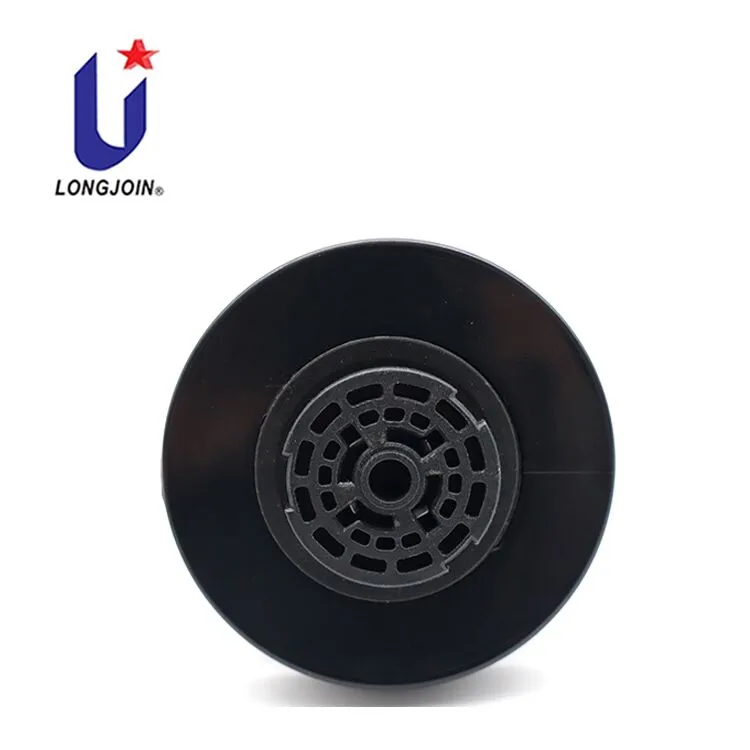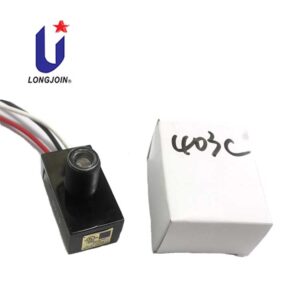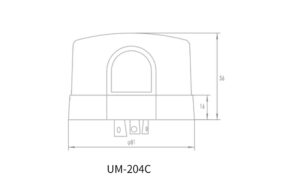Optimizing City Lighting: The Synergy Between NEMA Light Controls and Zhaga Microwave Sensors
Urban lighting that is effective and quick to react is important not just for improving the visual attractiveness of cities, but also for maintaining public safety. It boosts economic growth and decreases energy usage. As urban areas grow and develop, the need for more intelligent lighting options grows. We need systems that can change environmental factors.
In this article we will cover urban lighting technology, specifically looking at how NEMA light controls and Zhaga microwave sensors work together. When these two incredible technologies are merged, they provide a convincing answer for enhancing energy efficiency and safety.
What are NEMA Light Controls?
NEMA light controls are a consistent method for controlling outdoor lighting systems. They can work together easily regardless of the manufacturer or application. The base of NEMA light controls involves intelligent lighting control. The luminaires have sensors and communication abilities that change their output according to environmental changes and user needs.
The main elements of NEMA light controls consist of:
- Sensor Technology: NEMA-compliant lighting systems frequently include a range of sensors such as motion sensors, ambient light sensors, and occupancy sensors. These sensors allow the lights to sense movement. They analyze the amount of light present and understand how people are using the space.
- Communication Protocols: NEMA light controls commonly use standardized protocols like Zigbee, DALI, or Bluetooth mesh. This aids in smooth communication between luminaires and control devices. These protocols allow for the remote supervision and management of single luminaires or sets of luminaires.
- Control Strategies: We have advanced techniques to increase energy efficiency while certifying proper lighting which is important for safety and visibility. It uses tricks like dimming, zoning, scheduling, and lighting algorithms that adjust based on sensor data.
Advantages of NEMA Light Controls
Using NEMA light controls for urban lighting applications will give you an array of benefits.
- Energy Conservation: Energy efficiency is achieved by NEMA-compliant systems that reduce energy consumption. It works through dynamic adjustment of lighting levels according to motion or ambient light conditions, unlike the traditional static lighting setups.
- Improved safety: Adjusting lighting levels based on changing environmental conditions and user behavior increases visibility. It will also promote safety in public areas. Finally, it will decrease the chances of accidents and criminal incidents.
- Cost Savings: NEMA light controls can generate significant cost savings because they efficiently use energy. The maintenance expenses are reduced and remote management features will enhance the lifespan of the lighting system.
What are Zhaga Microwave Sensors?
Zhaga microwave sensors are a new method for sensing motion in lighting systems. It has standardized interfaces for LED lighting. Zhaga sensors provide a small, effective, and sensitive option for including motion detection features directly into light fixtures.
Important characteristics of Zhaga microwave sensors consist of:
- Microwave Technology: Zhaga microwave sensors, unlike typical passive infrared (PIR) sensors, use microwave technology to identify motion. They work by observing variations in electromagnetic waves instead of heat emitted by moving objects. This technology allows for more dependable motion detection. It works well regardless of surrounding temperature or radiation. So, Zhaga sensors are appropriate for various indoor and outdoor lighting needs.
- Small size: Zhaga microwave sensors are made to easily fit into LED lights. They have a small form factor that reduces visibility and makes installation easier. The consistent size and shape guarantee that it can work with many different styles and brands of light fixtures. It is simple to incorporate into current lighting systems.
- Customizable Sensitivity and Range: Zhaga microwave sensors allow users to adjust sensitivity and detection range settings. You can tailor the sensor’s response to individual application needs. This way you can accurately control turning lights on and off and increase energy conservation.
Caption: Zhaga Controller
Combination of NEMA Light Controls and Zhaga Microwave Sensors
Combining NEMA light controls with Zhaga microwave sensors produces a strong alliance that boosts the functionalities of city lighting systems. They are important in multiple aspects:
Sensing Precision
Urban lighting systems can now detect and react to occupancy and motion changes in real time with greater accuracy. They include the wide coverage and sensitivity of Zhaga microwave sensors along with the smart features of NEMA light controls. This makes accurate tuning of light levels according to user activity.
Adaptive Lighting Control
Zhaga microwave sensors grant detailed motion detection features. City lighting systems can automatically change lighting intensity depending on the presence or absence of people nearby. When combined with NEMA light controls, these sensors enable adaptive lighting control methods that optimize energy conservation.
Integration and interoperability
They are certified between NEMA light controls and Zhaga microwave sensors thanks to standardized interfaces and communication protocols used in both technologies. They have easy connection ability and use of lights and control devices from various brands. So, they are easier to set up and manage city lighting systems.
Scalability
The NEMA light controls and Zhaga microwave sensors can be easily expanded to cover larger areas. They can adapt to changing needs due to their modular design in urban lighting systems. This ability to easily expand allows for the affordable implementation of smart lighting systems in diverse urban areas.
Caption: Twist Lock Photocontrol
Applications
NEMA light controls and Zhaga microwave sensors are used in various ways in urban settings due to their combined capabilities.
- City streets are made safer and more energy efficient through adaptive street lighting that will adjust based on traffic patterns.
- Dynamic lighting in public parks and recreational areas is implemented to enhance safety and user experience. It promotes nighttime outdoor activities with reduced energy consumption.
- Parking areas and garages are made secure by visibility. It leads to lower energy consumption and operational expenses.
- Customizable lighting options are available for commercial and residential areas for the comfort of users. They cater to various times of day in urban environments.
Final Thoughts
To sum up, the combination of NEMA light controls and Zhaga microwave sensors is a major step forward in urban lighting technology. It is a complete solution to boost energy efficiency, safety, and functionality in public areas. Intelligent lighting control with accurate motion detection capabilities improves the quality of life. Cities and municipalities can develop more intelligent lighting systems that improve the lives of residents and visitors. It will also cut down on environmental impact and operational expenses.
FAQs
How do NEMA light controls optimize energy usage?
NEMA light controls optimize energy usage by enabling precise control over when and how outdoor lighting operates. It reduces unnecessary usage.
What are some examples of real-world applications for this integrated solution?
Real-world applications include street lighting, parking lot illumination, and outdoor area lighting in urban environments.
External Link
https://en.wikipedia.org/wiki/Passive_infrared_sensor






